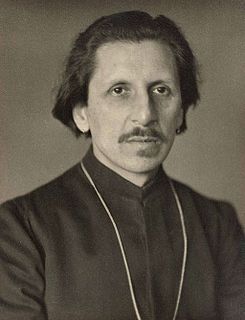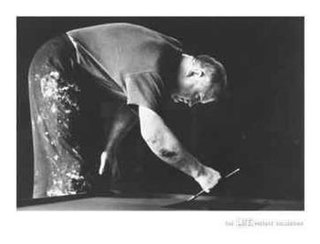A Quote by Karl Wilhelm Friedrich Schlegel
It is a thoughtless and immodest presumption to learn anything about art from philosophy. Some do begin as if they hoped to learnsomething new here, since philosophy cannot and should not do anything further than develop the given art experiences and the existing art concepts into a science, improve the views of art, and promote them with the help of a thoroughly scholarly art history, and produce that logical mood about these subjects too which unites absolute liberalism with absolute rigor.
Quote Topics
About
Absolute
Anything
Art
Art History
Begin
Cannot
Concepts
Develop
Existing
Experiences
Further
Given
Help
History
Hoped
Improve
Learn
Liberalism
Logical
Mood
New
Philosophy
Presumption
Produce
Promote
Rigor
Scholarly
Science
Should
Since
Some
Something New
Subjects
Than
Them
Thoroughly
Thoughtless
Too
Unites
Views
Which
Related Quotes
Think about it: you've already related it down to something that somebody else can understand. If art relates to something - it's like Picasso, it's like Mondrian - it's not. Art's supposed to be what it is. Using a reference of art history might help for some kind of sales, but it doesn't really help anybody. Art is what it is; it cannot be footnoted, until it enters the world. Then it has a history. Then the footnotes are the history, not the explanation.
I think a lot of people are involved in art because of the fashion of art and the conversation. It gives them a certain sophistication, something to speak about. But art is, if it's conceptual, really about understanding the concept. And if it's beautiful, it's about seeing the beauty. It's gone much further than that now. There's too much commercialism attached to art. If the market cracks one day big-time, you'll frighten so many people away who will never come back. Because they don't really feel for art. People who buy art should want it because they love it, they want to enjoy it.
What makes art Christian art? Is it simply Christian artists painting biblical subjects like Jeremiah? Or, by attaching a halo, does that suddenly make something Christian art? Must the artist’s subject be religious to be Christian? I don’t think so. There is a certain sense in which art is its own justification. If art is good art, if it is true art, if it is beautiful art, then it is bearing witness to the Author of the good, the true, and the beautiful
Much like teaching art to young art students age 10 to 15 or so on, you have to break it down into bite-sized pieces, essential components. You have to - you know, at this point I'm so used to operating within given assumptions about art. But when you're explaining art to art students or people who are new to this experience, you have to really go back to the fundamentals.
The one object of fifty years of abstract art is to present art-as-art and as nothing else, to make it into the one thing it is only, separating and defining it more and more, making it purer and emptier, more absolute and more exclusive - non-objective, non-representational, non-figurative, non-imagist, non-expressionist, non-subjective. the only and one way to say what abstract art or art-as-art is, is to say what it is not.





































